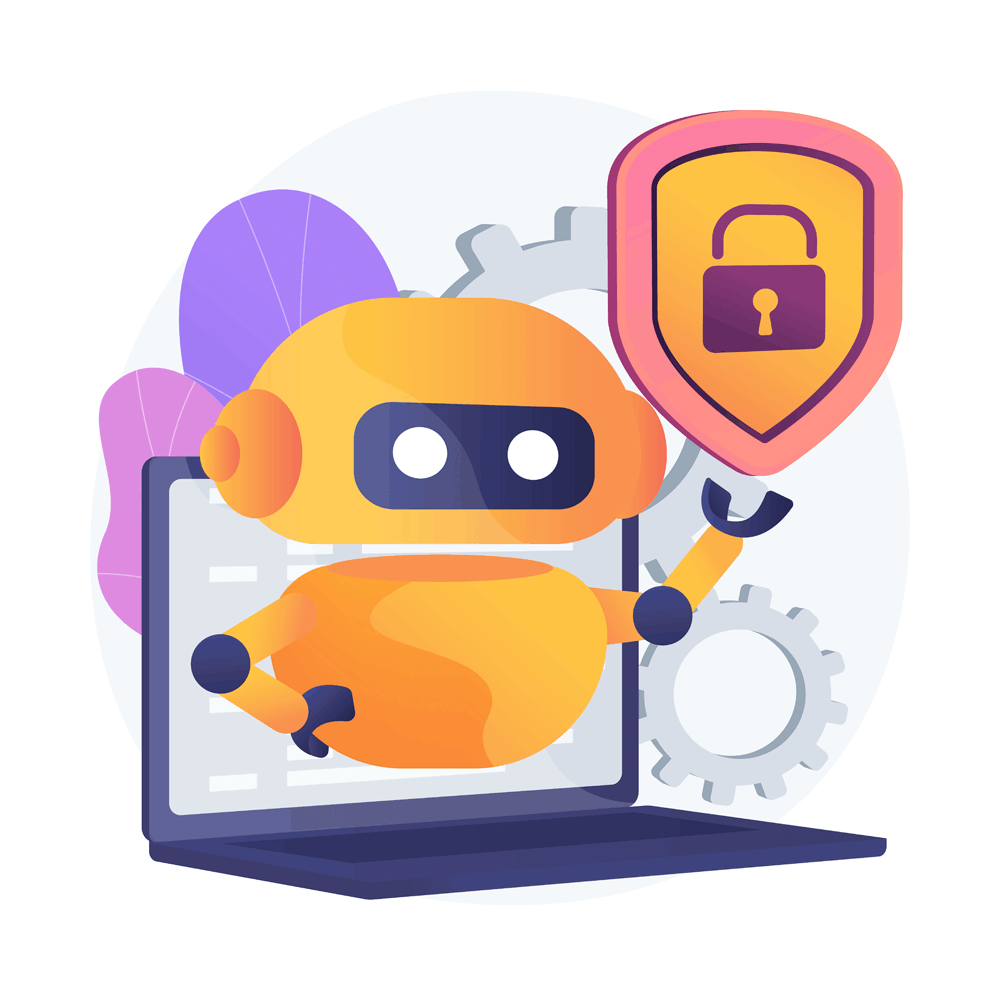 There’s a common saying that says, “Security is everyone’s responsibility.” While this is true in a practical sense, it’s simply not practical for most organizations, at least not for those who rely heavily on digital solutions.
There’s a common saying that says, “Security is everyone’s responsibility.” While this is true in a practical sense, it’s simply not practical for most organizations, at least not for those who rely heavily on digital solutions.
In this digital era, cyber threats are becoming more of a reality for businesses and organizations across all sectors. This is why highly trained, dedicated, and skilled cybersecurity professionals are becoming the need of an hour.
According to Cybersecurity Magazine, “there will be 3.5 million vacant cybersecurity jobs globally by 2021.” To fill these positions, numerous new cybersecurity professionals will soon come into the picture depending on their ability to secure data and information systems.
It shouldn’t surprise you if I say software developers will be key cybersecurity professionals in the coming years, as there is a consensus in the industry that security must be the major element of the software development lifecycle (SDLC).
This is the best time for developers to switch to security where they can utilize their existing skill set and work in another high-income and low-unemployment industry. Programming knowledge accompanied with the right level of cybersecurity skill is very valuable for automating repetitive processes that save countless hours, analyzing software for vulnerabilities, identifying malicious software, and even creating security tools that can be used to test the security of applications or systems.
For programmers who are skilled with Python, JavaScript, HTML, and even recent languages like Go, opportunities here are vast. It has now become equally important to improve the practical security skills of all the developers in addition to having dedicated security experts.
According to Chris Coleman, president of Woz U, “Someone can predict and avert cyberattacks only with a definite understanding of the vulnerabilities of systems.” And in order to prevent cyber attacks, you should think like a cybercriminal.
Coleman recommends the following cybersecurity skills for programmers on a broader level, irrespective of the area of specialization:
- Security and networking foundations
- Logging and monitoring procedures
- Network defence tactics
- Cryptography and access management practices
- Web application security techniques
Finding a programmer with these skills before jumping into the cybersecurity job market would really give your business a leg up on the competition.
There are plenty of reasons why developers are the right fit for the job… In fact, here are 10 reasons why you need developers with cybersecurity skills.
Thorough Knowledge of Programming Languages and Programming Skills
Profound knowledge of programming languages is crucial to stay ahead of hackers who have an intimate knowledge of these systems and the ways to exploit them. For example, by using Python, which is one of the easiest languages to learn, developers can integrate systems more effectively. You will find that a number of cybersecurity tools are written in Python. Also, Python script-based tools are used to navigate the website, test for XSS, and SQL injections.
Imperva, a leading cybersecurity software and service provider, reports that 77% of the websites they protect were attacked by a Python-based tool. This fact suggests that a cybersecurity professional, who could be a developer, should mimic real-life attacks to make sure that companies are ready when real attacks occur and also keenly understand the language and libraries used in real attacks.
Similarly, Javascript is also important because threat assessment of the functionality of web applications is usually written in Javascript and it is a common area where security professionals need to work.
On the other hand, programming skills in JavaScript, Python, and SQL are beyond useful to have when it comes to cybersecurity. As developers already have a better grasp of the core concepts around information security and protecting networks from malicious actors, it will open up more avenues in the industry for them.
Advanced-Level Cybersecurity Jobs

For this, it is important to have the following skills:
- Information security
- Network security
- Cryptography
- Project management
- Linux
The report of 10 cybersecurity skills for 2021 by Burning Glass, a leading labor market analytics firm, suggests that Cloud Security skills are the most lucrative of all, predicted to deliver a $15,008 salary boost in 2021. Whereas, Application Development Security, DevSecOps, Container Security, Microservices Security, Application Security Code Review are predicted to see an average $12,266 salary boost.
Implement Security at the Foundation
A more secure environment or application gives you the opportunity to work safer and more efficiently. Setbacks may happen during development, but an outside threat such as a data breach or cyber-attack can cause an entire shut down for extended periods of time. Breaches are even more harmful further into development when you have significant assets and content on the line.
For this reason, it’s best to go for a secure development process that makes your life a whole lot easier. If you successfully implement security at the foundation, there are a smaller number of components and updates to work on, launch, or manage afterward. It also makes later revisions much faster and simpler, because you can piggyback on the existing technology.
Security Design Principles are Vital for Companies
Even if your password hashing algorithms are strong, the data of your users is in danger if your database security is weak. While designing any security mechanism for a system, keep the fundamental security design principles in mind.
It is important for companies to develop software with security as the base from the first day itself to build secure systems and cut back vulnerabilities where measures such as continuous testing, authentication safeguards, and adherence to best programming practices are also needed to be considered.
If you fail to implement security early on, even if you try persistently with great effort, you won’t have a perfect design plan and will eventually fail.
New-Fangled Apps Produce More Data that Lead to More Risks
The increase of data storage and collection of incredibly important information in the medical, fitness, and intelligence world poses an increased demand for secure, reliable protocols. The use of new software applications or mobile apps causes an increase in data generation, the sharing of that data, and increases the demand for security.
This all leads to higher risks and a greater likelihood of attack for many companies, brands, and even individuals. So, it is very important that security is followed very seriously in all aspects of development and design, from initial wireframing and prototyping to the live launch. And developers are the key to decreasing these threats. By baking security into the core development of applications and systems, better protection is achievable.
Put Together Educated Decisions on Contradictions
It seems a little hard when it comes to developing both secure and easy to use solutions. If your level of security is superior then it might take more time to develop a feature that is not actually noticeable for end-users while sometimes it might deteriorate the performance of your software too. So, developers have to make educated decisions on “what’s secure enough” by keeping all the above things in mind. The knowledge of cryptography helps developers to uncover the correct balance of security, ease of use, and performance.
Importance of Incorporating Crypto Components Correctly
Application developers can integrate cryptographic components or algorithms correctly and securely which helps protect private information from attackers. Security challenges can also be solved by integrating third-party components and SDKs. They help to take most of the crypto workload off programmers’ shoulders.
However, make sure that you choose and integrate them properly on all the platforms and in a scalable way. To achieve the same, actionable knowledge of security is a must. Also, regular maintenance and updates are very essential so that you not only have to find the right components, but you also have to make sure they work together properly.
Sorting out Security’s Biggest Headache

If you have a security developer, the security team won’t rely on a separate development team to make changes to the technology stack during a new launch. Hence, new tools can be easily integrated into existing processes more effectively. All these points suggest that security developers have become so valuable.
A United Approach
In addition to security developers, organizations need to look for an extensible security platform that can fetch all those APIs and exciting tools into a central location where all of its data and employees can take advantage. One central system can help to pick out and present the most urgent threats which bring great benefits and give organizations a chance to respond as quickly as possible. With such greater collaboration within the industry, repositories can be provided where developers can share and collaborate, and also developers can work on their skills and make themselves and their teams more effective defenders.
However, keep in mind that one person can’t be a replacement for a good-sized team, make sure you have the right building blocks. The ideal situation is to have several team members with security developer skills.
Developers Can Adopt the Latest Technology Shift
Training and building security skills within development teams can help build a strategic security mindset for application development. They can efficiently use security-focused frameworks to ensure development is secure.
DevSecOps (Security + DevOps = DevSecOps) is the growing shift that fully integrates security into a DevOps workflow which builds a unified progression. It involves expanding each phase to include a security focus and incorporating cross-functional training in order to mitigate risks when the code is developed where the developer plays a big role.
Developer with Cybersecurity skills is surely a great platform for companies
Now you know the importance of having security skills for developers in addition to having dedicated security professionals. For developing secure software while minimizing vulnerabilities, the right mix of application developers, front-end, back-end, and dev-ops team with proficient skills in cybersecurity is a must.
Programming and security skills together form the key to create a reliable service and maintain user’s data safely.
